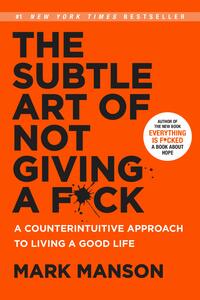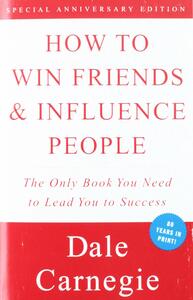My Favorite Non-fiction Part I: Psychology & Well-Being
Alrightey, it’s time for me to go to sleep, but I suddenly got a random rush of motivation to write this blog post. Let’s ride that wave.
This was originally meant to be a tech blog - but since I am very much a multi-faceted person, it’s not going to be exclusively tech. So why not also talk about some other stuff, such some book recommendations?
Now, my favorite books are mostly non-fiction. I love reading those. My reading habit is fairly new and I haven’t read all that much (no hidden niche gems here…yet), but I enjoy very diverse subjects, including psychology, mindfulness, business, macroeconomics, personal finance, entrepreneurship, history, and (of course) tech.
So here is part one of what I always tell people to read before they proceed to ignore me.
Robert B. Cialdini - Influence: the Psychology of Persuasion

Now, what I noticed, is that in selecting books is hard, but what works very well is to rely on recommendations by people whose work you respect (both in real life and strangers on the internet). In this case, this book is recommended on Joel Spolsky’s blog.
Robert Cialdini explains the works of a couple of psychological principles (such as the social proof, reciprocity, or scarcity) which often times cause us to switch off our brains and react on autopilot - something that can be leveraged by others.
Whether you are in the supermarket, at a job interview, or talking at a salesman, it surprised me how often these situations occur in real life, and how often I noticed them after reading the book! I think everyone should have a chance to recognize where their behavior might be sublty influenced.
The book is just the right length, and what I like especially about it, is that it is strongly backed by scientific research. Robert describes the mentioned principles in detail, and cites and explains many studies that back them. He takes a view from many perspectives, evaluating their strengths, shortcomings, preconditions etc.
Daniel Kahneman - Thinking, Fast and Slow

An absolute classic. I’ve read that this book is essentially required reading for any aspiring entrepreneur in Silicon Valley (?).
This book is kind of similar to Influence, but less focused on the six big principles. Instead, Daniel Kahneman contrasts our two modes of thinking: “System One”, running mostly subconciously on autopilot, but having quite a bit of influence on our decision making, and “System Two”, our slower but more rational, concious thinking.
The fact that our brains are wired this way gives cause to many fallacies and systematic biases, that we don’t really want to believe exist (that’s how I felt when reading this anyways). There is actually a surprising amount of that stuff, and much like in Influence, it is good knowing about it.
Daniel went on to win the Nobel prize in economics for his research on Prospect Theory, a topic he thoroughly covers in this book. As you can image, the book is very scientific, extensive, and kind of slow to read. Also, I would not recommend getting this one as an audio book, paper works better for this one.
Mark Manson - The Subtle Art of not Giving a Fuck

So, Mark Manson is a bit of a special case. I’ve been reading his blog for a while, and I found it not only very entertaining but often times also very profound.
This book often times scares people because of his vulgar language. Please try to understand, though, that this is a stylistic device, i.e. it helps him make a stronger expression. Me, personally, I don’t give a flying fuck about it, in fact I find it quite amusing, so that didn’t bother me at all.
While Mark writes a lot less scientific than the other books, and most claims come from his personal experience, this book had a lasting impression on me. In fact I would go so far as to say it gave me a new perspective on a couple of major things in my life at the time.
In the latter chapters quality decreases, but it is the first couple of chapters that really speak to me. This book though me some perspective on how things in life that we experience as “suffering” or “pain”, can ultimately end up being a good thing that helps us grow.
Sounds vague? Well, I don’t want to anticipate too much. If you feel you could be in a better place - give it a read, it might help you.
Dale Carnegie - How to Win Friends and Influence People

Another absolute classic, and in fact, one of the best-selling books of all time.
If I had to describe this book in one word, it would be wholesome - just a couple of principles that make you a better person. :)
The book came out in 1936 and indeed feels kind of “old” (mostly language-wise), although I would argue that the advice is so fundamental that it never truly goes out of date.
So. There are certainly a lot of classics and well known books here, many of which you can probably pick up in your favorite book store (if that’s still around, that is…).
What do you think of my list? Are you missing something on here? Do you agree with my thoughts? Let me know below or at @vtrdev.